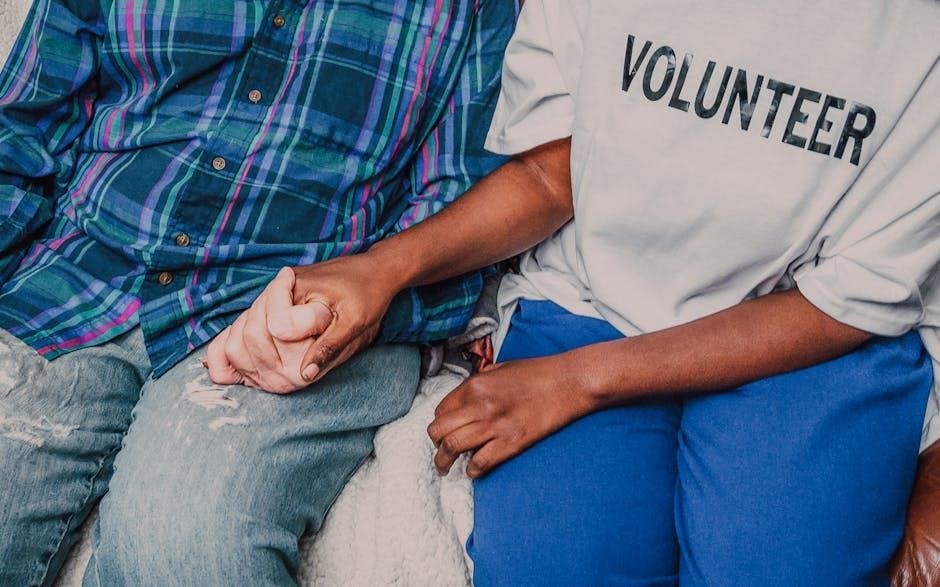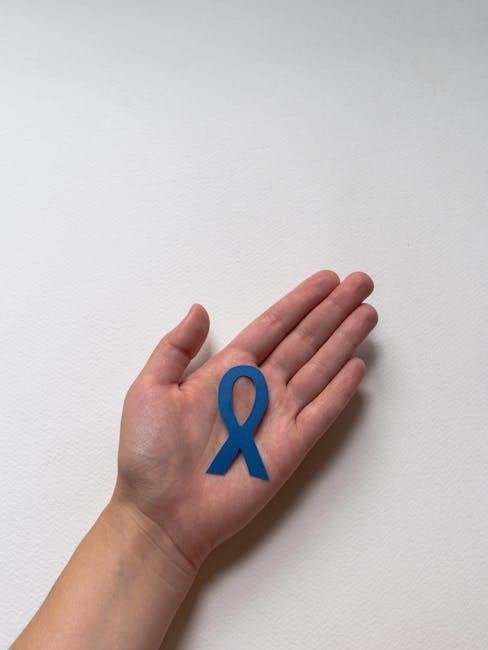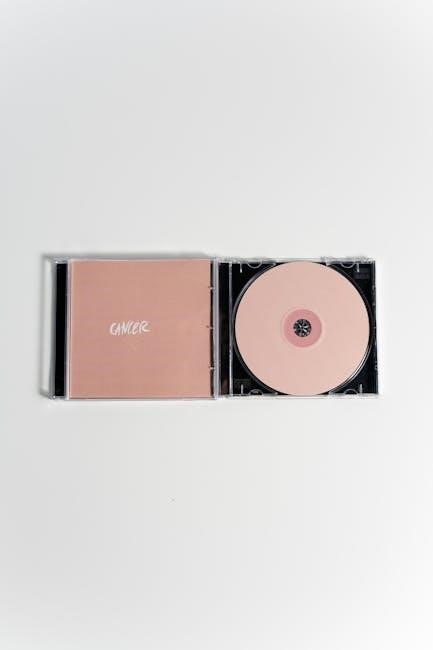charity care application form nj
- by zachery

The New Jersey Charity Care Program provides financial assistance to low-income individuals, offering discounted or free healthcare services at participating hospitals and clinics statewide.
1.1 Overview of the Program
The New Jersey Charity Care Program is a state-funded initiative designed to provide affordable healthcare services to low-income individuals and families. It offers discounted or free care for eligible patients who lack health insurance or have inadequate coverage. The program covers essential medical services, including inpatient and outpatient care, at participating hospitals and clinics. By reducing the financial burden of healthcare, it ensures access to necessary treatments for those in need. The program is administered by the New Jersey Department of Health, with eligibility based on income, residency, and lack of coverage.
1.2 Purpose and Benefits

The New Jersey Charity Care Program aims to ensure access to affordable healthcare for low-income individuals and families. Its primary purpose is to reduce financial barriers to medical services, helping those who cannot afford health insurance or face high out-of-pocket costs. Benefits include discounted or free care for eligible patients, covering essential services like hospital stays, surgeries, and outpatient treatments. This program bridges the gap for uninsured or underinsured residents, promoting health equity and financial relief for vulnerable populations across New Jersey.
Eligibility Criteria for Charity Care in New Jersey
Eligibility is based on income limits, New Jersey residency, and lack of health coverage. Applicants must meet specific financial and residency requirements to qualify for assistance.
2.1 Income Requirements
To qualify for Charity Care, applicants must meet specific income thresholds, which are typically based on the Federal Poverty Level (FPL). The program generally serves individuals and families whose income is at or below 200% of the FPL. Income verification is required, and this includes earnings from all household members, including wages, Social Security benefits, and other sources. The exact income limits may vary annually, so it’s essential to check the most recent guidelines. Documentation, such as pay stubs or tax returns, must be provided to confirm eligibility.
2.2 Residency Requirements
Applicants must be residents of New Jersey to qualify for Charity Care. Proof of residency is required, such as a valid driver’s license, utility bill, or lease agreement. The documentation must clearly show the applicant’s name and New Jersey address. Residency is typically determined based on the applicant’s domicile at the time of service. Dependents, such as spouses and minor children, may also be included if they meet the residency criteria. This requirement ensures that the program serves individuals with a established connection to the state.
2.3 Lack of Health Coverage
Applicants must demonstrate a lack of adequate health insurance or have coverage that only partially pays for medical expenses. They must also be ineligible for private or government-sponsored health programs. This ensures the program assists those without viable alternatives. Documentation, such as denial letters from Medicaid or other insurers, may be required to verify ineligibility. This criterion helps target support to individuals who genuinely cannot afford healthcare, aligning with the program’s mission to provide accessible care to New Jersey’s underserved populations.

Required Documentation for the Application
Applicants must submit valid identification, proof of New Jersey residency, and income verification. Additional documents may be requested based on individual circumstances.

3.1 Valid Identification
Applicants must provide valid identification for themselves and all dependents, including spouses and minor children. Acceptable forms include government-issued IDs, passports, or Social Security cards. Dependents’ IDs may also be required to verify eligibility. The identification must be current and valid at the time of application. Healthcare facilities may request additional forms of identification to confirm eligibility for the Charity Care Program. Ensuring all documents are accurate and up-to-date is crucial for a smooth application process.
3.2 Proof of New Jersey Residency
Applicants must provide documentation proving New Jersey residency, such as a valid driver’s license, state ID, utility bills, or lease agreements. These documents must clearly show the applicant’s name and New Jersey address. Proof of residency is essential to establish eligibility for the Charity Care Program, as benefits are reserved for state residents. All documents must be current and valid at the time of application. Healthcare facilities may request additional residency verification to ensure compliance with program guidelines. Ensuring accurate and up-to-date residency proof is critical for a successful application.
3.3 Income Verification
Income verification is essential to assess eligibility for the Charity Care Program. Applicants must submit recent pay stubs, tax returns, or letters from employers confirming earnings. For self-employed individuals, additional documentation like profit-and-loss statements may be required. These documents help determine if household income meets program thresholds. All income sources, including wages, Social Security, and pensions, must be disclosed. Accurate and complete income verification ensures fair evaluation of financial need, aligning with program guidelines. This step is critical for determining the appropriate level of assistance.
The Application Process
Applicants must complete the Charity Care application form, providing required documentation. Submit the form to participating healthcare facilities online or in person. Processing times vary.
4.1 Where to Apply
Applications for the New Jersey Charity Care Program can be submitted at any participating acute care hospital in the state. Patients should apply at the healthcare facility where they received or plan to receive treatment. Submissions can be made online, via mail, or in person at the hospital’s financial assistance office. For example, Jersey Shore University Medical Center in Neptune, NJ, accepts applications and can be reached at 732-902-7080 for inquiries. Applying directly through the healthcare provider ensures proper processing and timely determination of eligibility.
4.2 How to Submit the Form

The completed Charity Care application form can be submitted online through the healthcare provider’s website, via mail, or in person at the hospital’s financial assistance office. Applicants must ensure all required documents, such as proof of residency and income verification, are attached. Submission methods vary by facility, but most hospitals accept electronic or hard-copy applications. Once received, the healthcare provider reviews the application and may request additional information. Applicants are encouraged to contact the facility directly for assistance with the submission process to ensure timely processing. Proper submission is crucial for eligibility determination.
4.3 Processing Time
The processing time for Charity Care applications typically ranges from a few weeks to several months, depending on the healthcare facility and the completeness of the submission. Applicants are encouraged to follow up with the hospital or clinic to check the status of their application. Processing may be delayed if additional documentation is required. Once approved, the applicant will receive notification outlining the scope of financial assistance. It is important to allow adequate time for review and to inquire about expedited processing if urgent care is needed. Timely submission of all required materials helps ensure faster processing.

Additional Considerations
Additional considerations include signature requirements, ensuring applications are legally binding, and the role of healthcare facilities in verifying eligibility and processing applications efficiently.
5.1 Signature Requirements

The Charity Care application requires the applicant’s signature to confirm accuracy of information. Legal guardians must sign for minors or incapacitated individuals. Signatures ensure the application is legally binding and authentic. Failure to sign may result in delayed processing or rejection. Applicants must also agree to apply for other assistance programs if requested by the healthcare facility. This ensures all possible payment options are explored before granting Charity Care benefits. Proper signatures are crucial for verifying eligibility and completing the approval process efficiently.
5.2 Role of Healthcare Facilities
Healthcare facilities play a crucial role in the Charity Care Program by verifying patient eligibility and assisting with the application process. They are responsible for reviewing submitted documentation to ensure accuracy and completeness. Facilities may also request additional information or clarification to determine eligibility. Upon approval, they provide discounted or free care as per the program’s guidelines. Healthcare providers must also inform patients about their responsibilities, such as applying for other assistance programs if required. This collaboration ensures that patients receive the necessary care while adhering to program regulations.
The New Jersey Charity Care Program ensures affordable healthcare for low-income individuals, providing essential support to those in need while adhering to program requirements.
6.1 Final Tips for Applicants
To ensure a smooth application process, carefully review eligibility criteria before applying. Organize all required documents, such as valid identification and proof of residency, in advance. Double-check the application for accuracy and completeness to avoid delays. Submit the form promptly and consider following up with the healthcare facility to confirm receipt. By adhering to these guidelines, applicants can enhance their chances of a successful Charity Care application;
6.2 Importance of Compliance
Compliance with Charity Care requirements is crucial for a smooth application process. Failing to meet guidelines may result in delays or denial of assistance. Applicants must provide honest and accurate information to ensure eligibility is assessed fairly. Compliance also ensures the program remains sustainable for those in need. By adhering to the rules, applicants help maintain the integrity and fairness of the Charity Care Program, enabling it to continue assisting New Jersey residents effectively.
No related posts.
Apply for NJ Charity Care and get help with your application. Check eligibility and submit your form today!
Posted in Application Forms
Recent Comments
Archives
- January 2026
- December 2025
- November 2025
- October 2025
- September 2025
- August 2025
- July 2025
- June 2025
- May 2025
- April 2025
- March 2025
- February 2025
- January 2025
- December 2024
- November 2024
- October 2024
- September 2024
- August 2024
- July 2024
- June 2024
- May 2024
- April 2024
- March 2024
- February 2024
- January 2024
- December 2023
- November 2023
- October 2023
- September 2023
- August 2023
- July 2023
- June 2023
- May 2023